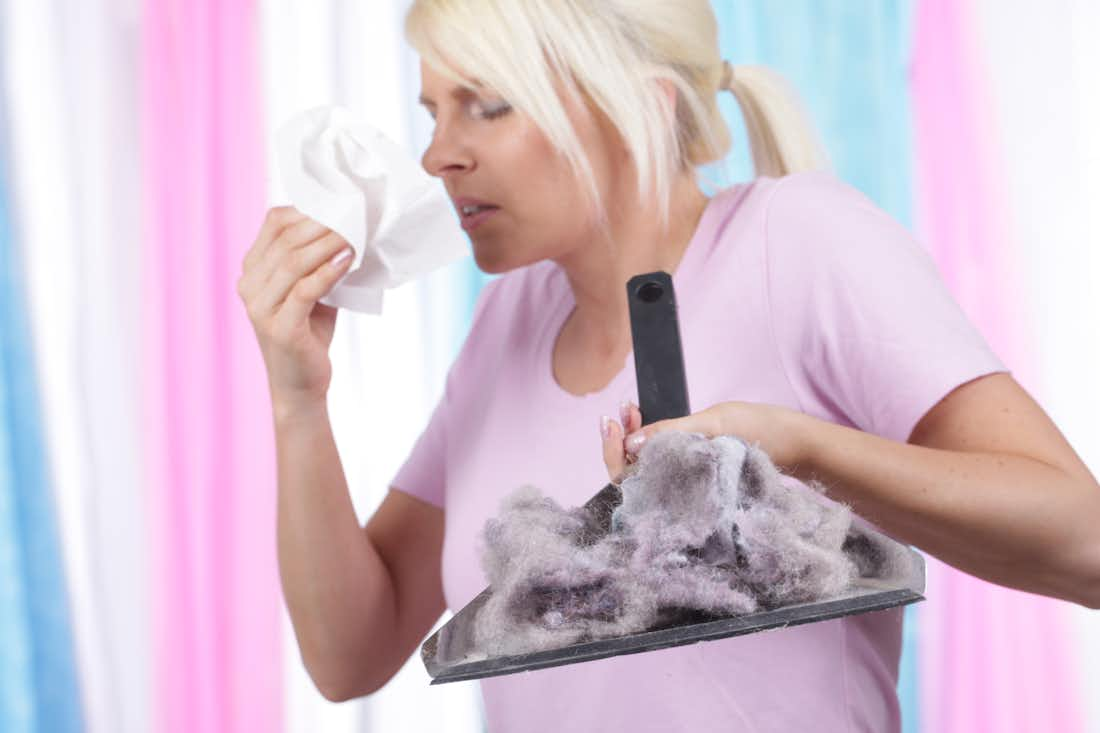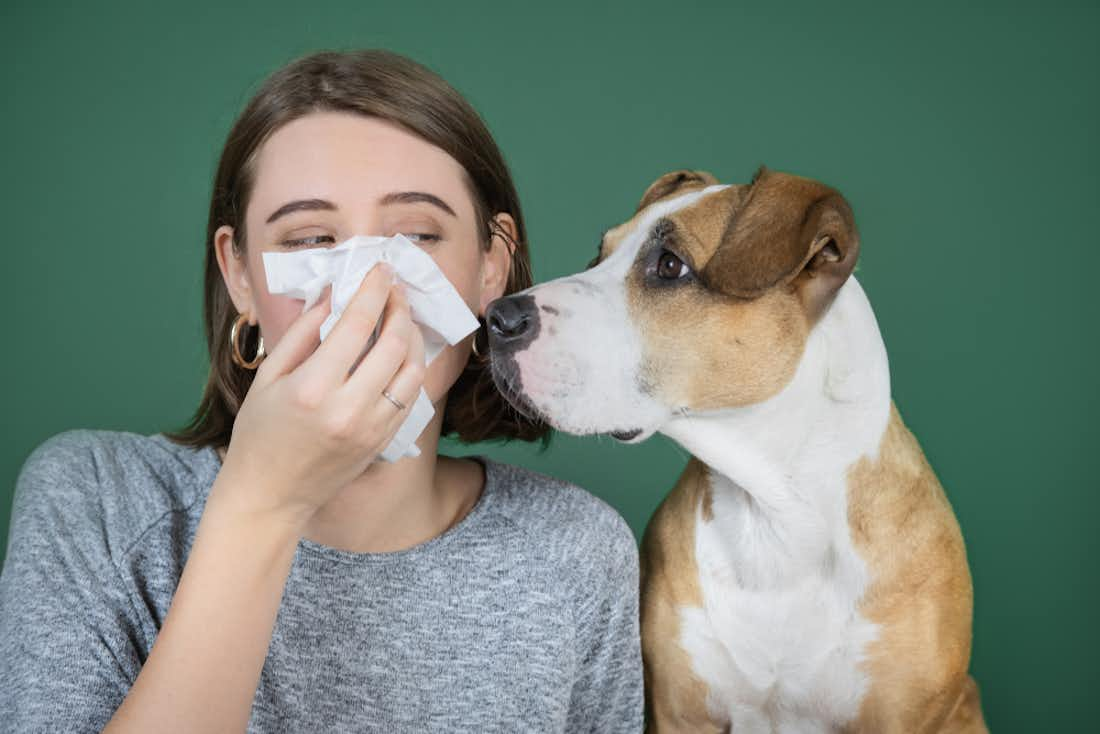Jul 7, 2022
What Allergy Medicine Is Safe for Pregnancy?
5 minute read
Managing allergy symptoms is tough enough, but it’s even more of a challenge when you’re pregnant. If you’re planning on having a baby in the near future or already have one on the way, it’s always wise to be prepared for any changes you might have to make to your allergy management regimen.
Some medications are not considered safe to take when pregnant, including some treatments for allergies.
In this post, we’ll cover the do’s and don’ts of taking allergy meds while pregnant, but it is always best to check in with your doctor. This article is not meant as medical advice.
Immunotherapy and Pregnancy
Immunotherapy is one of the most popular and effective allergy treatments there is. This treatment method works by introducing your immune system to small amounts of your allergy triggers, increasing the dosage over time.
The goal of immunotherapy is to lower your immune system’s sensitivity to allergens, providing you with long-term relief from allergy symptoms.
There are two types of immunotherapy – subcutaneous and sublingual.
**Subcutaneous Immunotherapy (allergy shots) is a form of Immunotherapy that an allergist can only administer in-office.
You’ll be given slowly increasing doses with this treatment, building up to a maintenance dose after a few months. From there, you may need to get shots for several years before your symptoms go away completely.
Sublingual Immunotherapy is a treatment method involving the use of either drops or tablets taken orally or dissolved under your tongue. Unlike allergy shots, you can take sublingual immunotherapy treatments at home without an allergist present. There are FDA-approved sublingual tablets currently, but not FDA-approved sublingual drops available in the U.S..
Is Immunotherapy Safe for Pregnant Women?
If you get pregnant while undergoing immunotherapy treatment, there’s no need to pause your shots or allergy drops. Immunotherapy is considered safe during pregnancy, and your allergist will continue to monitor you after you receive each dose to ensure that you aren’t experiencing any unexpected side effects.
However, allergists often stop increasing dosages of immunotherapy treatments when a patient gets pregnant, waiting until after delivery to resume treatment progression. If you are already taking a maintenance dose of your immunotherapy treatment, your dosages will remain unchanged throughout your pregnancy.
If you’ve been considering starting immunotherapy treatment for your allergies, it’s best to wait until your baby is born. After the delivery, you can begin exploring the treatment options for immunotherapy with the help of an allergist.
Antihistamines While Pregnant
When it comes to over-the-counter allergy relief medications, it’s always a good idea to talk to your doctor before taking one while pregnant. Many non-prescription allergy relief medications aren’t considered safe to take during pregnancy, but some are, including:
- Fexofenadine (Allegra)
- Diphenhydramine (Benadryl)
- Cetirizine (Zyrtec)
- Loratadine (Claritin)
While taking these non-prescription antihistamines during pregnancy isn’t considered an inherent risk, your doctor may still recommend that you take a different approach to manage allergy symptoms while pregnant. Again, it is always best to check with your physician before taking any medication while pregnant.
Let’s discuss some of the other allergy treatment options out there – and their safety for pregnant women.
Are Nasal Sprays Safe for Pregnant Women?
If your allergies are causing lots of nasal congestion, sneezing, and buildup of mucus, intranasal steroid sprays are some of the best treatment options to try. These sprays typically contain a combination of medication and a saline solution, and most are available without a prescription.
Certain nasal sprays are safe to use while pregnant as long as you stick with the recommended dosage each time you use one. In addition, you can get the benefits of a nasal spray without the medication by using a neti pot.
Neti pots contain the same type of saltwater solution that nasal sprays do, but they aren’t medicated. A neti pot is a great home remedy for allergies to turn to while pregnant – or any other time.
Air Purifiers, Humidifiers, and More
Some of the safest and most effective ways to manage your allergy symptoms don’t require taking medication at all. You may find relief from your symptoms by improving the air quality in your home with a humidifier or an air purifier. Here’s how:
Air purifiers, especially those equipped with HEPA filters, are designed to trap airborne allergens and other particles, cleaning up the air in your home in the process.
In addition to using a standalone air purifier, you can also install a HEPA filter in your home’s HVAC system.
If your nose is stuffy and irritated, adding moisture to the air in your home with a humidifier may help.
Humidifiers work by turning water into steam and increasing the humidity in the air. When you’re having trouble breathing comfortably due to allergy symptoms, plugging a humidifier in – and pairing it with an air purifier – can make a big difference.
Why It’s Important To Watch What You Take When You’re Expecting
The primary reason why some medicines are not recommended when pregnant is simple is that they can increase the risk of birth defects. Research on certain prescription and over-the-counter medications indicates that they may increase your baby’s risk of developing congenital heart defects, congenital heart disease, down syndrome, and other diseases and disorders at birth.
** What Other Medications Aren’t Safe During Pregnancy?**
While pregnant, it’s important to communicate with your doctor about any medications you are taking – even supplements and vitamins. In addition to some allergy medications, numerous other medicines can increase the risk of birth defects, including:
Accutane This acne treatment is often recommended for patients who experience severe cystic breakouts. While the drug is FDA-approved, it’s also well-known that Accutane has many potential side effects. In addition, it can dramatically increase the risk of having a baby born with a birth defect.
- Doctors typically recommend that a woman avoid getting pregnant for up to three years after finishing Accutane treatment.
SSRIs Selective serotonin reuptake inhibitors – also known as SSRIs – are often used to treat mental health problems like anxiety and depression. This class of drugs includes Prozac, Paxil, Zoloft, and several others.
Recent research has indicated that some SSRIs may cause birth defects, especially congenital heart conditions. If you are currently being treated for a mental health issue and are taking an SSRI, make sure to talk to your doctor if you are planning on getting pregnant.
Antibiotics Some antibiotics, including Nitrofurantoin, Sulfonamides, and Tetracyclines, are not considered safe to take while pregnant.
These drugs were developed more recently compared to first-generation antibiotics like penicillin and amoxicillin, which are safe to take when pregnant.
NSAIDs Non-steroidal anti-inflammatory drugs like Ibuprofen, Aleve, and Motrin are associated with a slightly higher risk of birth defects.
Luckily, these medications have plenty of alternatives, including Tylenol, which can safely be used to manage pain during pregnancy.
Other medications Some psychoactive drugs, anti-seizure medicines, and antifungals.
Minimizing Allergy Symptoms During Pregnancy
In addition to taking medications and using home remedies for allergy relief, there are plenty of other steps you can take to make your allergies more manageable. They include the following:
Keeping Your Home Clean
One of the primary factors that can trigger allergy symptoms is building airborne particles in your home. Allergens can float around in the air around your house due to a wide array of factors, and breathing them in can trigger a flare-up of your allergy symptoms.
Common indoor allergens include:
Pet dander If you have animals in your house, they may be contributing to your allergy symptoms. Vacuuming carpets, sweeping floors, and cleaning other surfaces frequently can help minimize the number of allergens that your pets leave behind.
In addition, giving your animals frequent baths during allergy season – and throughout the year – can also help reduce the amount of allergy symptoms that you experience at home.
Dust mites These microscopic critters nestle in sheets, upholstery, carpets, and other warm surfaces throughout your home.
They feed on the dead skin cells that humans leave behind, triggering allergy symptoms in many people. One of the best ways to minimize the amount of dust mites in your home is to clean frequently.
Mold Mold can trigger allergy symptoms both indoors and outdoors. It can grow in your home due to excess moisture, poor ventilation, and other factors.
Using a HEPA air purifier and cleaning often can help prevent the growth of mold – and get you the relief that you need from your allergies.
Conclusion
When you are pregnant, dealing with allergies and other health issues can become more challenging than ever. Luckily, there are plenty of steps you can take to manage your allergies when you’re expecting them.
Treatments like immunotherapy, certain antihistamines, and home remedies can all be reliable sources of relief from allergies during your pregnancy, and they’re safe for both you and your baby.
Whenever you have questions or concerns about taking a certain medication while pregnant, it’s always wise to talk to your doctor!
Sources:
Allergies - Symptoms and causes | Mayo Clinic
Subcutaneous immunotherapy versus sublingual immunotherapy: which is more effective? | NCBI
Authors

Dr. Payel Gupta
Medically reviewed by Dr. Payel Gupta



